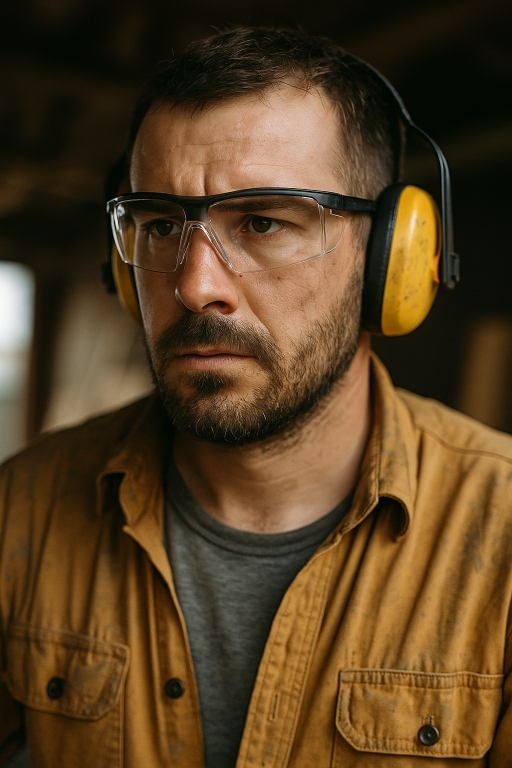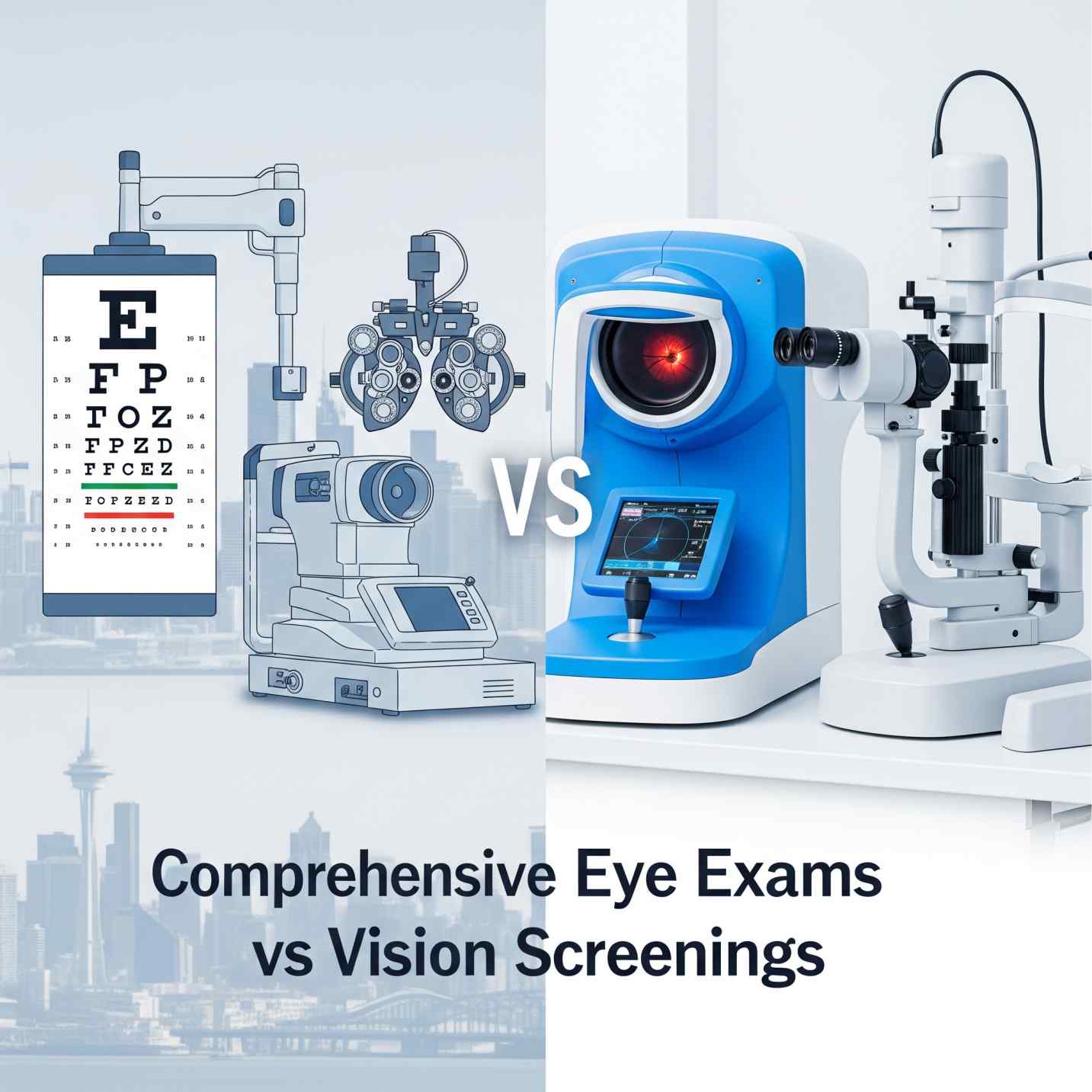Safety Glasses & Eye Injury Help in Seattle
Eyes are exceptionally vulnerable
Blunt trauma, chemical burns, or scratches require immediate care from an eye specialist—not general urgent care clinics. For Seattle WA residents:
-
Visit an ER with ophthalmology coverage or a certified eye doctor.
-
Avoid “Doc-in-the-Box” clinics: They lack tools for accurate eye injury diagnosis.
Delayed specialist care risks permanent damage..
Why are corneal injuries so painful?
Your cornea has more nerve endings than any body part. Even minor abrasions feel excruciating (8-10/10 pain). At Cannon EyeCare, we use numbing drops to:
-
Relieve discomfort
-
Enable thorough exams
This is the first step toward healing.
Treating Corneal Foreign Bodies in Seattle WA:
-
Numb the eye
-
Stain with fluorescent dye to detect damage
-
Remove debris using specialized tools (spud, Alger-Brush drill)
While most heal in a week with medicated drops, central injuries risk permanent scarring
Critical Eye Injuries to Prevent in Seattle WA:
-
Foreign objects: Wear ANSI-rated safety glasses during DIY projects (e.g., car repairs).
-
Chemical burns: Rinse eyes immediately if exposed to bleach/ammonia → visit a Seattle ER or eye doctor.
-
Scratches/pokes: Wear sunglasses during outdoor activities; trim long nails before handling contacts.
Your eyes deserve lifelong protection. Prioritize prevention:
-
Use safety glasses for risky tasks
-
Seek specialist care for injuries
Seattle patients: Schedule annual exams at Cannon EyeCare (Market Optical) to safeguard your vision.
Why Safety Glasses Are Non-Negotiable in Seattle WA
Your eyes face daily risks at work and home. Safety glasses are vital shields against vision loss—not optional gear.
Eye Injury Risks: Seattle Workplace Reality
Annual US workplace eye injuries: 300,000+. 90% preventable with protection. Common Seattle-area hazards:
-
Blunt trauma: Construction debris/tools
-
Chemical burns: Industrial cleaners in ports/labs
-
Corneal abrasions: Metal/dust in workshops
-
Infections: Clinic/lab exposure
Why so painful? Your cornea has the body’s highest nerve density—even tiny scratches cause blinding pain.
How Safety Glasses Save Seattle Sight
AOA-confirmed: Proper eyewear prevents 90% of injuries. Essential for:
-
Tradespeople (Shipyard/construction)
-
DIYers (Home projects)
-
Lab workers (UW research facilities)
Key Tip: Choose ANSI Z87.1 safety glasses—Seattle hardware stores carry certified options.
Consequences of Unprotected Eyes
Neglecting eye protection risks:
-
Permanent blindness from chemical burns
-
$50K+ medical costs per injury (CDC)
-
Lost wages during recovery
As a Seattle WA optometrist at Cannon EyeCare, I’ve seen these devastate local families.
Your Action Plan
Seattle residents: Protect your irreplaceable vision with:
-
ANSI-rated safety glasses during risky tasks
-
Immediate ER visit for injuries (UW Medical Eye Center)
-
Annual exams at Cannon EyeCare (Market Optical)
Choosing Effective Safety Glasses in Seattle WA
Selecting proper eye protection requires matching glasses to your specific risks—comfort ensures consistent wear, the key to injury prevention.
Assess Your Seattle Environment
-
Construction/Manufacturing (Shipyards, Boeing sites): Impact-resistant lenses + wrap-around side shields
-
Chemical Handling (Port labs, cleaning services): Tight-seal goggles with splash guards
-
Healthcare (UW Medical, clinics): Disposable anti-fog goggles
-
Outdoor Hobbies (Hiking, kayaking): UV400 lenses + polarized tints for glare reduction
Critical Lens & Frame Features
Material:
-
Polycarbonate (lightweight, stops 99% UV)
Tint Optimization:
-
Clear: Indoor workshops
-
Amber: Seattle’s overcast days
-
Mirror-coated: Water/snow glare
Comfort Essentials:
-
Silicone nose pads (adjustable)
-
Spring-loaded temples
-
Ventilation channels (prevents fog)
Prescription Solutions at Cannon EyeCare
We customize:
-
ANSI Z87.1-certified prescription safety glasses
-
Clip-in inserts for existing frames
-
Blue-light filtering for computer work
FAQs
-
Why should I wear safety glasses even for small tasks?
Safety glasses protect your eyes from flying debris, dust, and chemicals that can cause serious injuries, even during minor tasks like DIY projects or gardening.
-
What features make safety glasses effective for eye protection?
-
How do I know if my safety glasses fit properly?
-
Can I wear safety glasses if I need prescription lenses?
-
When should I replace my safety glasses?
-
Do clear safety glasses protect against UV rays?
-
How can I prevent safety glasses from fogging up during work?
-
What types of eye injuries can safety glasses prevent?
-
Are safety glasses required by workplace safety standards?
-
How comfortable are modern safety glasses for long-term wear?
-
Can safety glasses protect against chemical splashes?
-
What is the difference between safety glasses and safety goggles?


